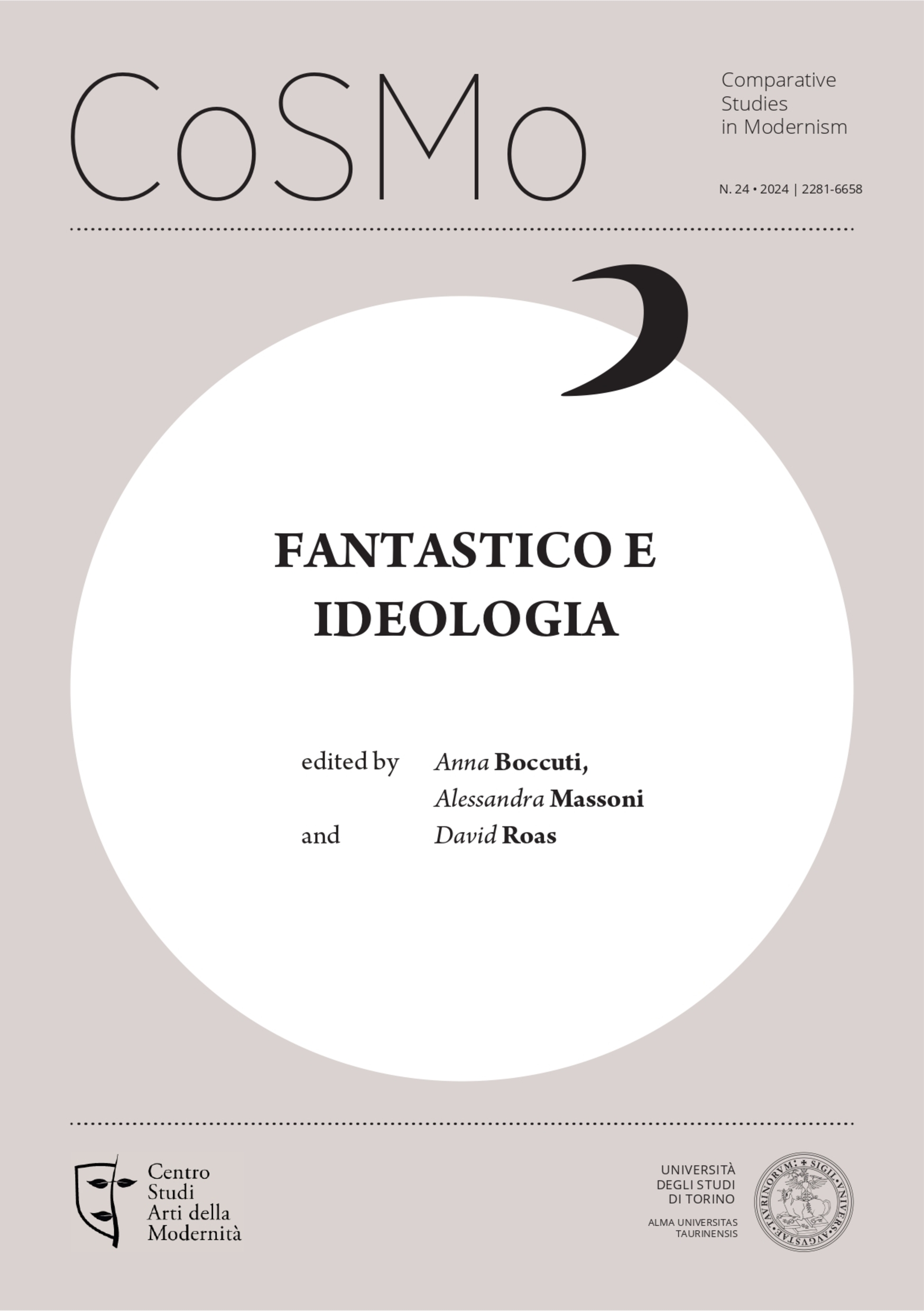Fantastic Nuances
The (In)visible Ideology in the Imaginary Cities by Rhys Hughes, Mélanie Fazi and Ana Teresa Pereira
DOI:
https://doi.org/10.13135/2281-6658/10697Keywords:
Fantastic, Ideology, Unusual, Subversion, ValueAbstract
The fantastic universes of Rhys Hughes, Mélanie Fazi and Ana T. Pereira lead the reader to a subversion of the current understanding of contemporary urban habits, in opposition to the idea that the fantastic plays a “defence of the status quo” (Monléon 1990). These three authors elaborate on how the fantastic “traces limits on cultural epistemological and ontological framings” (Jackson 1981). This epistemological aspect of the fantastic meets the epistemological dimension of the ideology (Eagleton 1991), because ideologies “are multilayered symbols of reality that brought together complex ideas” (Freeden 2003). The fantastic, with its absurd and unusual fictional universes, subverts the symbols of predictable cosmovisions. The purpose of this study is to examine the strategies and tools developed in order to ponder the ethical and ideological values in the short stories “Corneropolis” and “The City That Was Itsef” by R. Hughes, “La cité travestie” by M. Fazi and “A rua sem nome” by A. T. Pereira.
Downloads
Downloads
Published
Issue
Section
License
Authors keep the copyrights for their work and give the journal the work’s first publication copyright, which is at the same time licensed under a Creative Commons License – Attribution, which in turn allows other parties to share the work with an acknowledgement of the work's authorship and initial publication in this journal.
Content Licence

You are free to copy, distribute and transmit the work, and to adapt the work. You must attribute the work in the manner specified by the author or licensor (but not in any way that suggests that they endorse you or your use of the work).
Metadata licence

CoSMo published articles metadata are dedicated to the public domain by waiving all publisher's rights to the work worldwide under copyright law, including all related and neighboring rights, to the extent allowed by law.
You can copy, modify, distribute and perform the work, even for commercial purposes, all without asking permission.





